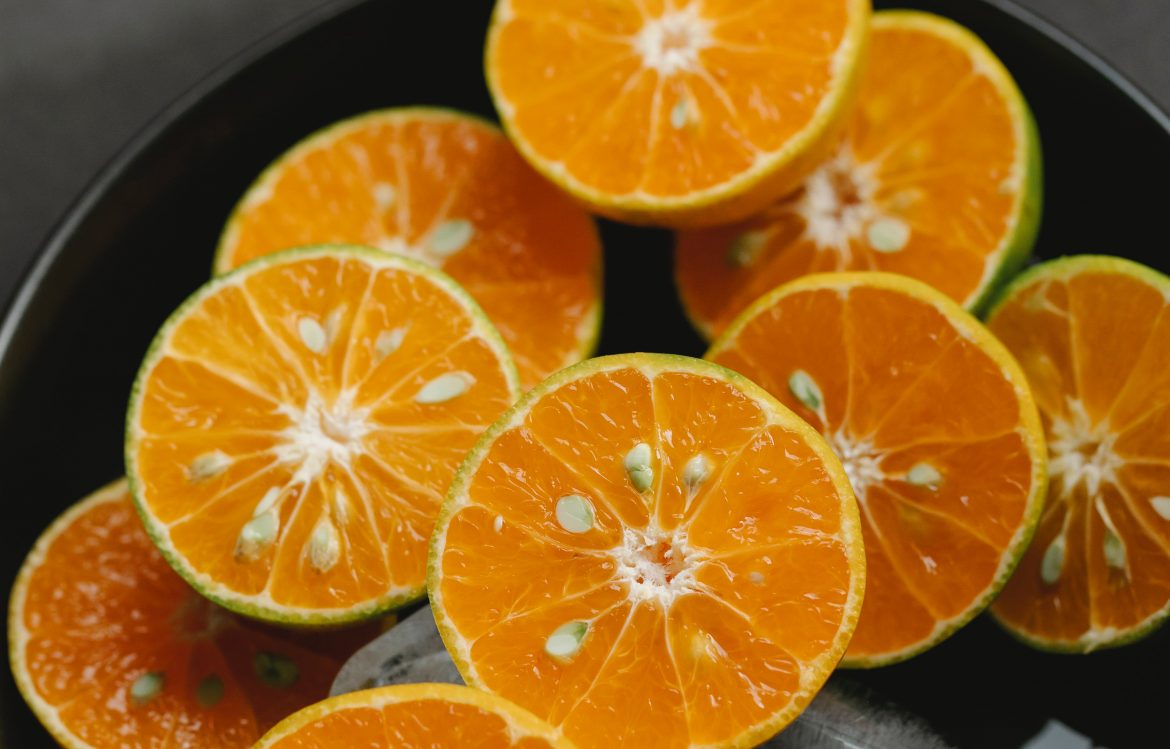Whenever cold-season rolls around we hear more and more about vitamin C. We all know it’s recommended as a powerful immune booster, but that’s only scratching the surface of why vitamin C is important.
The nutrient is necessary to form everything from blood vessels and cartilage to muscle and collagen. Plus it is essential in the body’s healing process. However the body cannot produce vitamin C itself – nor does it store it – which is why it is crucial to get it from your diet, every day.
How your body uses vitamin C
Collagen synthesis
The U.S National Institute of Health states that ‘Collagen is the most abundant protein in the body and plays a critical role in connective tissues like those found in our organs and of course our hair, skin, and nails.’ While collagen supplements are becoming increasingly popular, we should also be looking to vitamin C.
ALSO SEE: The truth about collagen
Vitamin C is essential in the production of collagen and therefore helps to keep us looking and feeling young, from our bones to our skin. Boosting collagen production is an anti-ageing saviour, especially when it comes to the skin. In fact, a study published in September 2015 in Clinical, Cosmetic, and Investigational Dermatology found that topically applying vitamin C to the skin led to increased collagen production and younger-looking skin.
Wound healing
Because vitamin C helps the body produce collagen, it has also been known to aid wound healing. Those with a low daily intake of the vitamin may experience slower wound healing due to their bodies lower production of collagen. During times of recovery, a supplement can be a good idea to support the healing process.
Maintaining cardiovascular health
Studies have shown that vitamin C has a positive impact on heart health. They suggest it may:
- have antioxidant properties
- help widen the blood vessels
- improve nitric oxide production
- help reduce plaque instability in atherosclerosis
Not only does this show potential of protecting us from heart disease, but other cardiovascular related issues too. Like hypertension and high blood pressure.
ALSO SEE: Heart-healthy foods to put on your plate now
Protecting eye health
Research has shown that vitamin C can potentially lower one’s risk of cataracts. Some also believe it to help slow down the progression of age-related macular degeneration. This is due to the vitamin’s antioxidant properties. Although, more research is needed here.
Consulting your doctor and/or ophthalmologist should always be the first step.
Absorption of iron
How vitamin C interacts with other vitamins and minerals is a big plus, especially with iron that is found in plant foods. According to Harvard Health, eating vitamin C at the same time as nonheme iron (the type found in plants) leads to better absorption. This is useful for those who suffer from anemia, as well as vegetarians and vegans who often struggle with getting adequate iron.
Iron supports growth, development and helps the body transport oxygen throughout the body.
Immune strength
It was what the vitamin is most famous for: supporting our immune systems. It does this by protecting against oxidative stress that aids microbial killing, decreasing potential damage. A high dose of vitamin C has also been shown to help reduce allergy symptoms too. Furthermore, it encourages the production of some white blood cells, helps them function more effectively and protecting them from damage from harmful molecules (like free radicals). Ultimately, protecting the body against infection and speeding up recovery.
Interestingly, those with allergies and poor health have been known to show low vitamin C levels.
Where to get your dose
While a multivitamin is encouraged, here is where you can get your dose from nature:
- raw citrus fruits
- broccoli
- red cabbage
- kiwi
- bell peppers
ALSO SEE:
Feature Image: Getty

